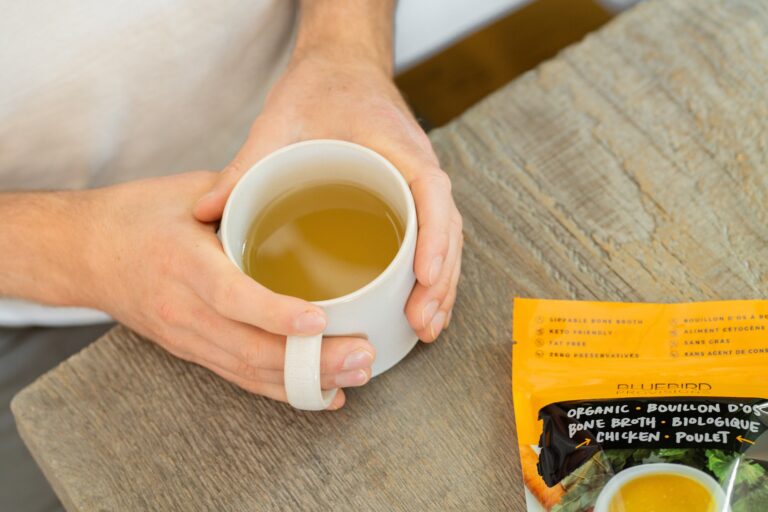Sara Dow is a ACE Certified Weight Management and Fitness Nutrition Specialist. She is also a ACE Certified Personal Trainer and Small Group Trainer at the Y. Twice a month, her blog posts will feature nutrition education, a healthy recipe she has tried and loves, and tips to help you achieve your health goals, as well as answers centered around a nutrition question from a Y member.

Collagen is a crucial protein for healthy skin, bones, and joints, but our natural production slows down as we age. A recent explosion of collagen supplements on the market promises everything from improved skin and hair health to decreased joint pain and reduced inflammation. With so many claims, it can be tricky to separate fact from fiction. Let’s explore some myths about collagen supplements and good food sources of this essential nutrient.
Common myths about collagen supplements:
Myth 1: Collagen supplements can reverse aging.
Fact: While collagen supplements may improve the appearance of the skin, they cannot reverse the aging process. Aging is a natural process, and no supplement can stop it altogether.
Myth 2: Collagen supplements are vegan.
Fact: Most collagen supplements are derived from animal sources, such as cow hides and scales. However, vegan collagen supplements from plant-based ingredients like seaweed, algae, and amino acids do exist.
Myth 3: Collagen supplements are the only way to increase collagen in the body.
Fact: Other ways to boost collagen production include eating a diet rich in collagen-boosting nutrients like vitamin C and amino acids. Obtaining collagen from food sources is inexpensive and provides additional nutrients and health benefits beyond just collagen.
What are good food sources of collagen?
- Bone broth: Bone broth is an excellent source of collagen, made from simmering animal bones and connective tissue. Check out this simple recipe for homemade bone broth from a registered dietitian.
- Fish: Fish, especially the skin, is a rich source of collagen. Salmon, tuna, and cod are good options.
- Chicken: Chicken skin and bones contain collagen, making it a good choice for those looking to boost their collagen intake.
- Eggs: Egg whites are high in proline, an essential amino acid for collagen production.
- Citrus fruits: Citrus fruits like oranges and lemons are rich in vitamin C, essential for collagen synthesis.
What about collagen supplements?
It is important to consult with your healthcare provider or a registered dietitian nutritionist (RDN) before starting any new supplement to ensure it is safe and appropriate for your individual needs.
What does the research say?
The effectiveness of collagen supplements remains a topic of debate. A 2019 review of 11 studies on the use of collagen supplements for osteoarthritis found that while collagen supplements may reduce joint pain, there is no evidence to support their use for improving joint function or reducing inflammation. Another study from 2018 found that collagen supplements may improve skin hydration and elasticity, but further research is needed to confirm these findings.
How do I find a reputable supplement brand?
Choosing a reputable collagen supplement brand is essential as some supplements may not contain the advertised amount or quality of collagen. To ensure a high-quality collagen supplement, look for products certified by third-party organizations like NSF International, USP, or ConsumerLab.com. These organizations test products for purity, potency, and safety. Look for their certification mark on the product label.
Summary: While some studies suggest that collagen supplements may benefit skin, joint, and bone health, more research is needed to confirm these findings. A balanced diet that includes collagen-boosting foods, such as bone broth, fish, chicken, eggs, and citrus fruit, is a safe and effective way to support overall health and collagen production.
Contact: Have a question about nutrition? Drop Sara a line at [email protected]. Your question may be featured in a future blog post.
About Sara Dow

Hi, I’m Sara and I am passionate about helping people improve their quality of life through the knowledge and practice of good nutrition.
In 2018, I was inspired by the YMCA community to go back to school and pursue my dream of becoming a registered dietitian. I am now in my senior year, double majoring in Nutrition and Dietetics at Kansas State University. I am excited to share with you what I am learning.
![[Glacial Community YMCA LOGO SQ]](https://recliquecore.s3.amazonaws.com/imgs/ymca_logos/named_y/blue_purple.png)
![[Glacial Community YMCA LOGO FULL]](https://s3.amazonaws.com/recliquecore/imgs/ymca_logos/named/blue_purple.png)